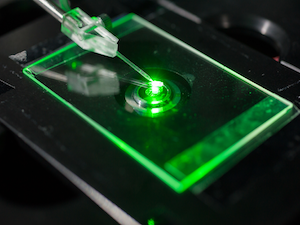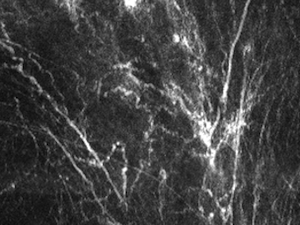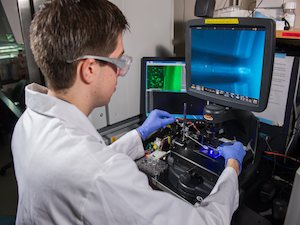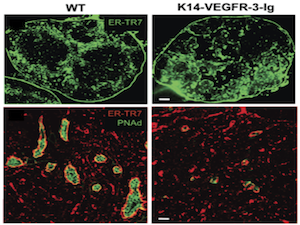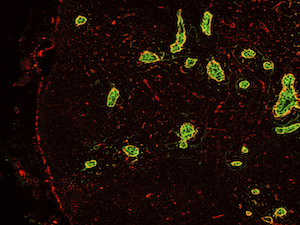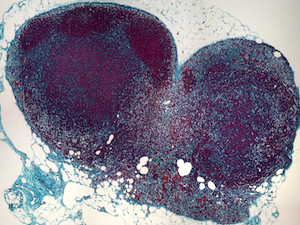Forces that arise as a result of fluid flow through tissues in the body play critical roles in regulating a variety of physiological and pathophysiological processes, including innate and adaptive immune response, metastasis and hematopoiesis. We seek to understand how such forces either drive pathogenesis or alleviate disease, and how this insight can be exploited for therapy.

Engineering in vitro systems to study cell adhesion dynamics in fluid flow
We develop and implement novel in vitro microfluidic systems to analyze the role fluid mechanical forces play in cell homing processes. The rationale is that a specific understanding of the molecular underpinnings of cell adhesion in fluid flow will enable the development of selective inhibitors of cell adhesion within precise mechanical environments that can disrupt cell accumulation within target tissues for disease therapy.

Tissue remodeling effects on molecular clearance and biodistribution
Factors produced within or administered directly into the tumor interstitium, such as cytokines, chemokines, proteases, exosomes, microvesicles, or therapeutic agents, play important and multifaceted roles in the regulation of malignant disease progression. We are evaluating how tumor-associated inflammatory signaling influences their bioavailability to mediate signaling in distributed tissues outside of the tumor microenvironment as well as the tissue remodeling processes that regulate the biodistribution of tumor-derived factors.
 Thomas Lab
Thomas Lab